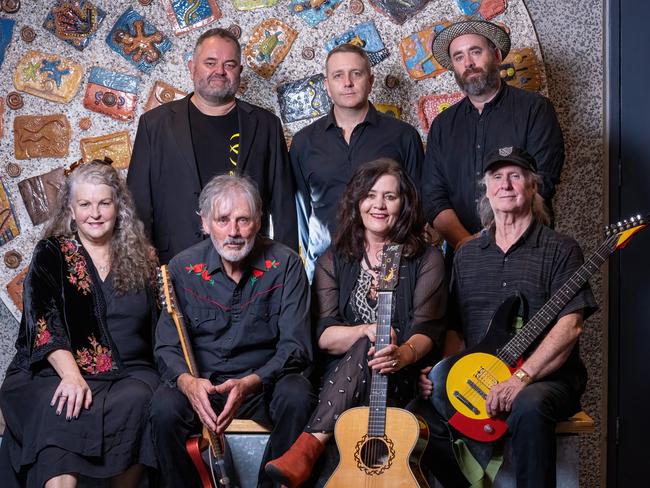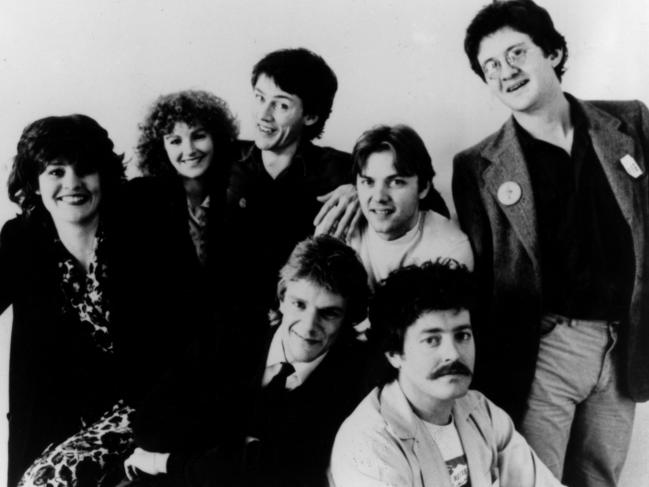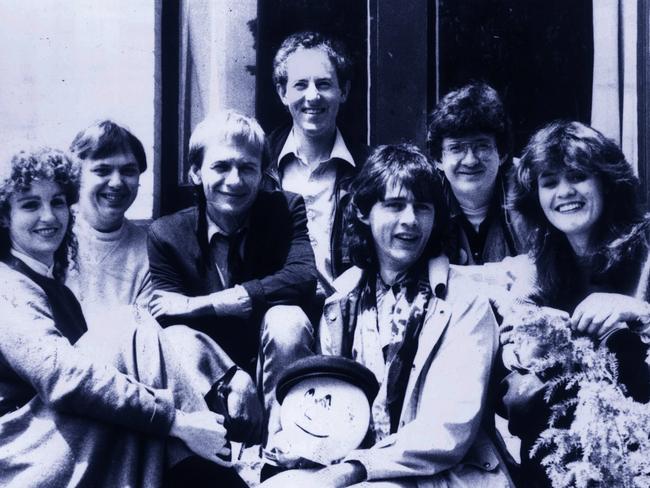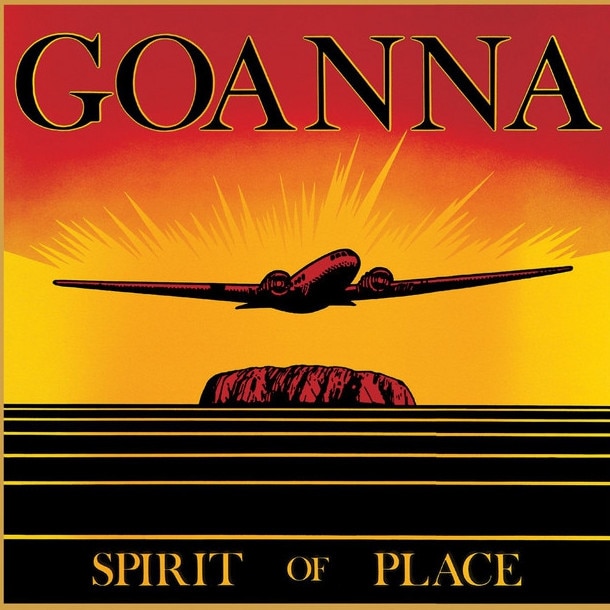Goanna kicks off 40th anniversary tour in Cairns
Before Beds Are Burning and Treaty there was Solid Rock. Now the band behind Australia’s first Indigenous land rights anthem explains how their hit wiped them out.
Music
Don't miss out on the headlines from Music. Followed categories will be added to My News.
It is perhaps Australia’s most unlikely pop hit. It wasn’t even supposed to be released as a single.
Yet Goanna’s debut single Solid Rock, Australia’s first Indigenous land rights anthem to rise to the upper echelons of the pop charts, “pretty successfully” killed the band in the 1980s.
“It’s like that great Sinead O’Connor song. Success (has) made a failure of our home,” band founder Shane Howard says with a wry chuckle.
“I think we had too much success too soon. For a first album, we’d been hoping we might get a little radio airplay and be able to travel to Sydney and maybe further afield; we’d never even done a national tour.”
The “overnight” success of Solid Rock after its release in 1982 – five years after the frontman formed the band in Geelong – was quickly followed by the debut album Spirit of Place and put Goanna on the map much further afield.
The song came to Howard after a 10-day camping trip to Uluru where he had a “spiritual awakening” and felt compelled to write about the injustices suffered by Australia’s First Nations peoples.

Goanna’s label WEA (now Warner Music) baulked at the prospect of releasing the social justice anthem; no one expected it to be played on radio, let alone make it onto the pop charts, where it would rise to No.3.
“No one thought a song that was so political like Solid Rock could be so commercially successful; the world was pretty brutal in the ’80s for anyone thought of as greeny, hippy lefties,” Howard says.
“But the record label took the risk on this social justice song. I remember the boss at the time Paul Turner telling me ‘Shane, the poets, the artists, the writers, they see it, write it, paint it and 15, 20 years later, it’s legislation.’”
The Spirit of Place record would go on to sell about 300,000 copies – a huge achievement for a homegrown act at the time.
“After Spirit of Place came out, we were running flat out. The Americans were saying drop everything you’re doing in Australia and get here: ‘You’re going to be bigger than Men at Work!”
“We had to say no. We hadn’t even toured around Australia at that point. They were heady times.”

But the relentless tour schedule which followed, the pressure to match the sales figures of their debut with second album Oceania, and “corporate shenanigans”, as Howard refers to the band being dropped twice in two years by their major label, broke the band’s will.
Burnt out and disillusioned, the frontman walked out as they toured in support of Oceania, and the band called time in late 1985.
“We ended up in a lot of debt, enough debt in the ’80s for me to think I would never be able to repay it in my lifetime,” Howard says.
“The band was falling apart around me, everything collapsing and we couldn’t pay wages, the managers left and you’re on your own.
“They were hard, hard times and I feel like Goanna never got to realise what was probably going to be our best work.”
There was a brief reunion in 1998 with original members Howard, his sister Marcia and Rose Bygrave reforming to make that long-delayed third record Spirit Returns, with guests including Irish musician Liam O’Maonlaí, the lead singer of popular band Hothouse Flowers.
With the 40th anniversary looming, Australian promoter and lifetime Goanna fan Brian Taranto approached Howard in late 2021 about getting the band back together.

The frontman dismissed the request with the facetious “you’re 10 years too late, mate”.
He jokes he felt too old, and too uncertain about what Australia’s touring landscape would look like in 2022 with Covid still holding live music hostage late last year.
But he agreed to give the band members, including Spirit Of Place guitarist Graham Davidge a call – and enlist some other players (guitarists Mike Biscan and Warrick Harwood both having died in April 2020) – to see if the magic remained.
Within five minutes of ripping into Solid Rock in a rehearsal space in Geelong, Goanna was reborn.
“It all just fell together; there was a lot of smiling, a lot of jokes, a lot of laughter,” Howard says.
“Absolutely, this is about unfinished business. But this is (also) healing business within the band and with our audience. It’s a chance for us to say thank you the people who gave us these lives as artists.”
The timing of the Goanna reunion – albeit tied to a 40th anniversary – also comes as momentum accelerates behind support for the Uluru Statement From The Heart and towards recognition for First Nations peoples in the Australian Constitution.

Howard could feel the swell of that people power when the band opened for Midnight Oil at their gigs in Geelong and the Sunshine Coast.
As they head out on the road for the anniversary shows, the caretakers of their music at Warner Music, led by label President Dan Rosen, are also determined Goanna’s catalogue is given its proper due after all these years.
“I grew up listening to this music and I feel really privileged I have the opportunity to help a new generation discover it and for it to get the credit it deserves in the Australian music industry,” Rosen says.
“Solid Rock was the first rock song to bring the issue of Aboriginal land rights into the mainstream, five years before Beds Are Burning, 10 years before Treaty. So Goanna really were trailblazers and the song still resonates today because there is still unfinished business to be done on behalf of First Nations peoples.”
The 40th anniversary tour kicks off on Saturday in Cairns; for all tour dates and tickets, https://thegoannaband.com/home





